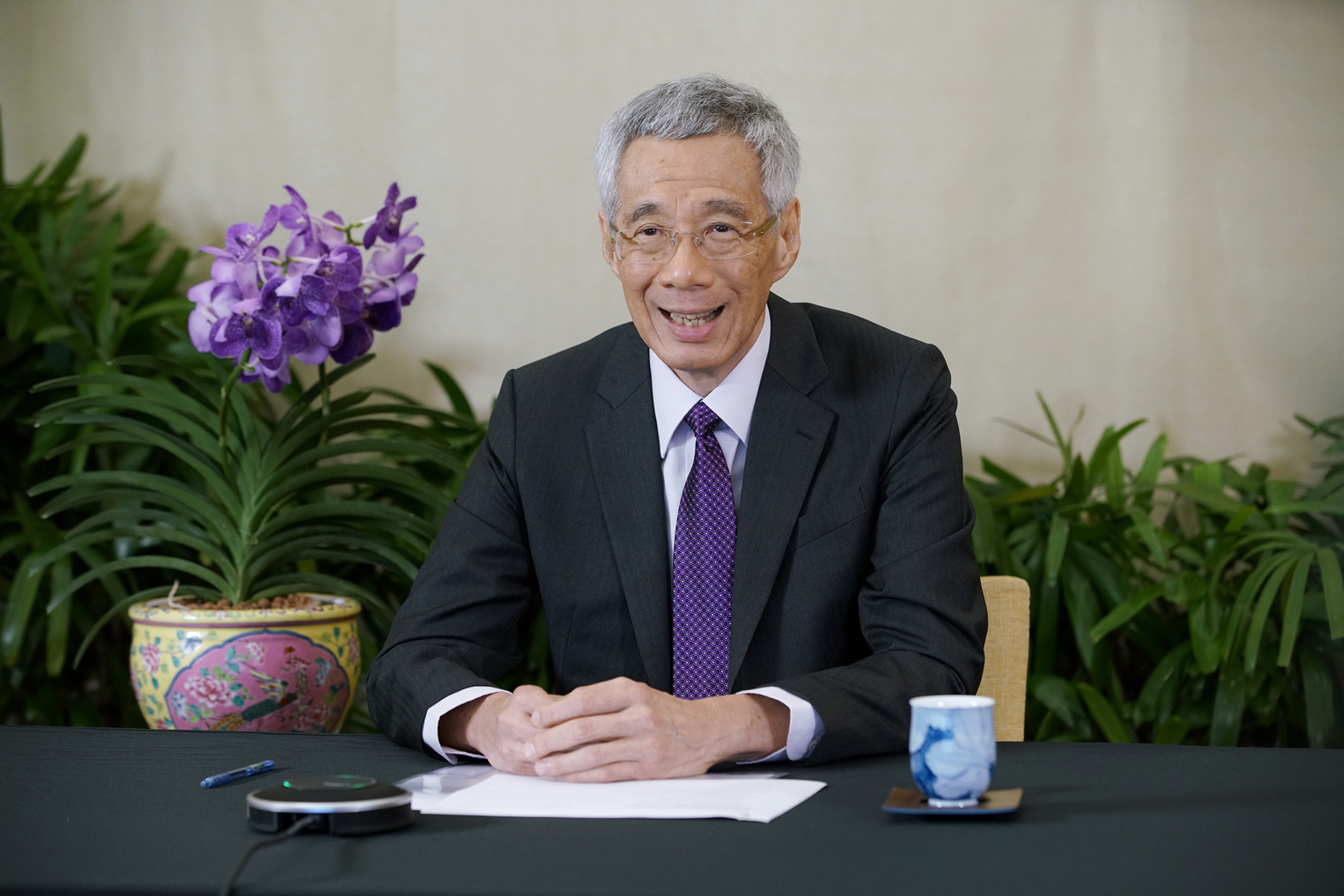To resume travel, develop system to verify Covid-19 tests, vaccines: PM Lee at WEF event
Sign up now: Get ST's newsletters delivered to your inbox

Prime Minister Lee Hsien Loong delivering a special address to the World Economic Forum Davos Agenda 2021.
PHOTO: MINISTRY OF COMMUNICATIONS AND INFORMATION
SINGAPORE - Countries should work together to develop a robust system to verify the authenticity of Covid-19 tests and vaccinations, said Prime Minister Lee Hsien Loong.
A standardised system is essential to reopen borders and resume international travel, he said on Friday (Jan 29) in a special address to the World Economic Forum (WEF) Davos Agenda 2021.
Mr Lee made the point as he highlighted how countries need to strengthen international cooperation, which is essential in tackling the global pandemic.
Globalisation was already under pressure even before Covid-19, he noted during the address chaired by WEF president Borge Brende.
"Confidence in multilateral institutions, rules and norms was eroding. Populist politics, nativism, nationalism and protectionism were on the rise," he said.
If countries are to tackle Covid-19 coherently, international cooperation and multilateral efforts, as well as an international order underpinned by stable great power relations, are critical, Mr Lee said.
He noted that as the pandemic unfolded, countries worked together to restore supply chains, repatriate one another's citizens, and support multilateral vaccine initiatives such as Covid-19 Vaccine Global Access (Covax).
As vaccination becomes more widespread, countries can hopefully ease restrictions and economies will rebound after a deep plunge, he added.
With the pandemic entering a new phase, governments will have to make hard decisions about unviable businesses and jobs, he said.
This, in turn, will exacerbate existing stresses and place them under more pressure to adopt protectionist and nativist positions.
"To resume growth, we must look beyond returning to status quo ante. We must look ahead."
He said that within countries, governments and businesses have to collaborate to tap new markets and develop novel technologies.
In the longer term, countries should work together to update and strengthen international institutions like the World Trade Organisation, and create new rules to govern and foster novel forms of economic activity, he added.
For instance, new e-trade regulations have to be developed to sustain the growth of the digital economy, and facilitate safe, secure and efficient cross border e-payments and data flows.
Global cooperation is also needed to tackle other long-term challenges such as climate change, he said, noting that 2020 was the world's hottest year on record, and extreme weather events have become much more frequent.
"We can take some comfort that countries are now taking climate change more seriously. The US has re-joined the Paris Agreement. China has announced a zero emissions target by 2060," he said.
"But much more still needs to be done, going beyond our Paris commitments. Otherwise, we risk grave consequences in the not too distant future, even within our own lifetimes."
US President Joe Biden had signed an executive order on his first day in office to have the US rejoin the Paris climate agreement.
But getting countries to work together is not simply a matter of nurturing and showing goodwill, said Mr Lee - the international order must be underpinned by stable great power relations.
Recent years have witnessed growing friction and distrust among major powers rather than cooperation and confidence building, he said.
The most worrying trend, he added, is in US-China relations, which remains the most important bilateral relationship for the world in the years ahead.
Mr Lee said regular constructive dialogue is critical to build a stable international order.
The WEF plays an important role in promoting dialogue, as a forum where leaders from countries large and small alike can speak and be heard, he said.
That is why Singapore agreed to host the special annual meeting of the WEF in May, he added. "Not a decision lightly taken, but we are happy to make a modest contribution to the global discussion."
More than 1,500 business, government and civil society leaders from over 70 countries took part in the week-long Davos Agenda discussions that are ending on Friday. They will feed into May's WEF special annual meeting.


